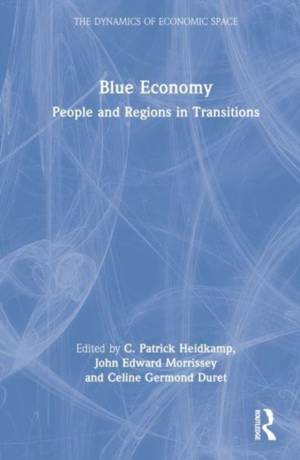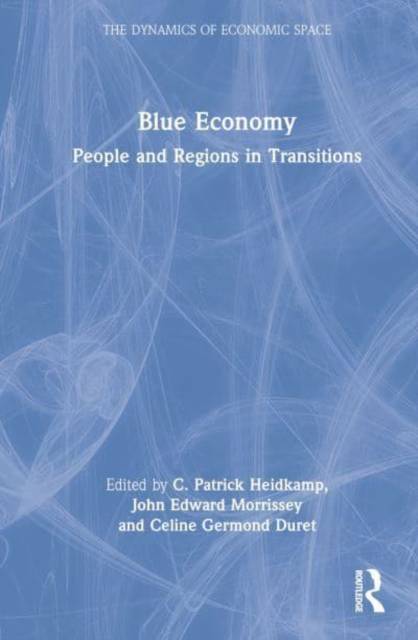
- Retrait gratuit dans votre magasin Club
- 7.000.000 titres dans notre catalogue
- Payer en toute sécurité
- Toujours un magasin près de chez vous
- Retrait gratuit dans votre magasin Club
- 7.000.0000 titres dans notre catalogue
- Payer en toute sécurité
- Toujours un magasin près de chez vous
Description
This book presents state-of-the-art perspectives on the Blue Economy. It applies important geographical and sustainability transitions perspectives and underscores how Blue Economy dynamics are situated in regional contexts and shaped by the people who live there.
The book highlights the Blue Economy concept as a potential driver of regionally sensitive, ecologically embedded, and community-focused sustainability. The scope for Blue Economy to form a core "cog" in our low-carbon future is obvious, from the potential for renewable energy production and coastal resilience building to possibilities for sustainable food production and the delivery of economic opportunities for peripheral communities. However, fundamental questions remain on how to meaningfully deliver these promises, such as how to avoid embedding a model of damaging extractivism, as per the terrestrial economy, and how to deliver on the key social sustainability principles of human well-being, equity, and justice when planning and developing blue economies. As the UN Decade of Ocean Science for Sustainable Development opens, this book provides a timely reminder of the richness, diversity, and potential of coastal and marine spaces. It advances geographical and transdisciplinary understandings of the Blue Economy and sets a baseline for continued scholarly engagement with the Blue Economy from a variety of perspectives.
This timely contribution will be of interest to policy makers, academics, industry leaders, decision makers, and stakeholders working in or connected to the Blue Economy Sphere and working in the fields of Economic Geography, Regional Development, Public Policy and Planning, Environmental Studies, and Coastal Zone Management.
Spécifications
Parties prenantes
- Editeur:
Contenu
- Nombre de pages :
- 252
- Langue:
- Anglais
- Collection :
Caractéristiques
- EAN:
- 9781032248158
- Date de parution :
- 30-12-22
- Format:
- Livre relié
- Format numérique:
- Genaaid
- Dimensions :
- 156 mm x 233 mm
- Poids :
- 1059 g

Les avis
Nous publions uniquement les avis qui respectent les conditions requises. Consultez nos conditions pour les avis.





